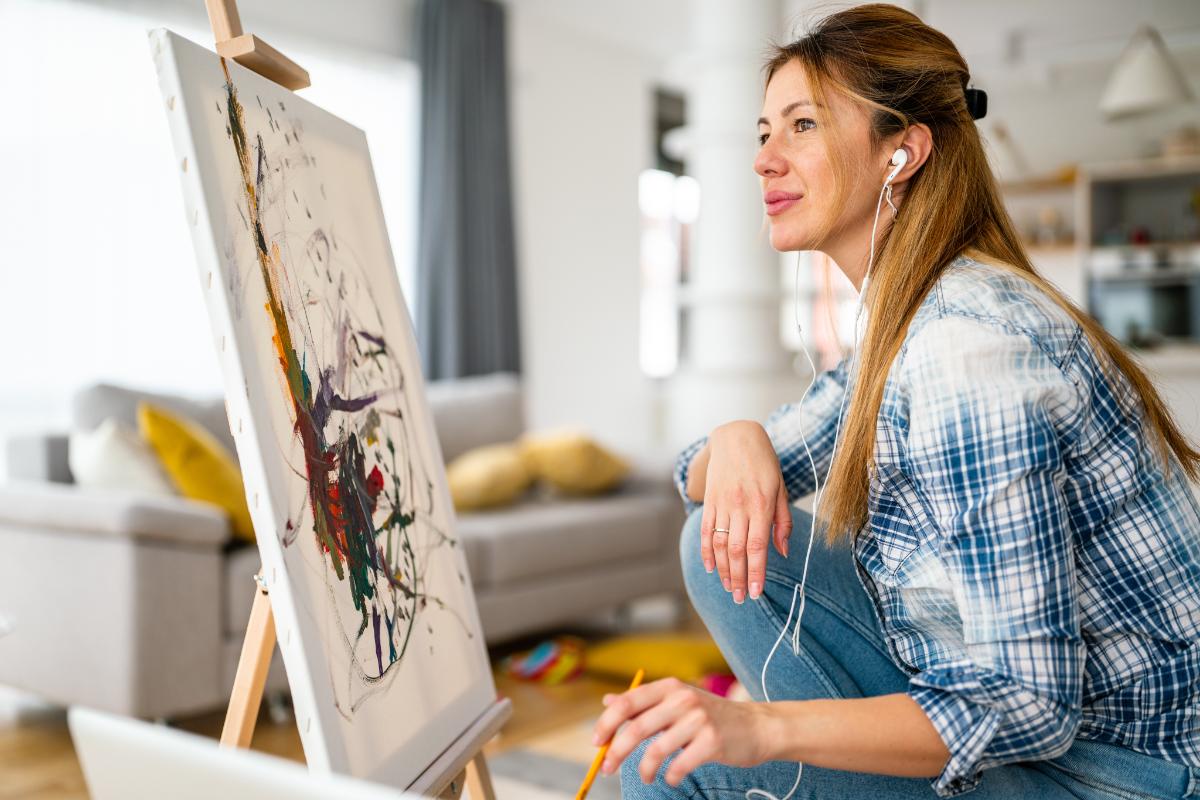A holistic approach to addiction treatment is relatively modern, and people often have never heard of or have questions about art therapy in relation to recovery. Combined with traditional treatment methods, art therapy can be very beneficial to the overall process. For more information about art therapy and substance abuse treatment, reach out to Gulf Breeze Recovery at 833.551.2304.
What Is Art Therapy?
Art therapy, according to the American Art Therapy Association, is the ‘use of art media, the creative process, and the resulting artwork to explore feelings, reconcile emotional conflicts, foster self-awareness, manage behavior and addictions, develop social skills, improve reality orientation, reduce anxiety, and increase self-esteem.’
Perhaps one of the most appealing things about art therapy is that there is no wrong way to do it. Anyone can participate and benefit, and all you have to do is express yourself in a way that feels gratifying and freeing to you.
What Are the Benefits of Art Therapy?
Art therapy has been shown to have a positive impact on the recovery process for a number of reasons, including helping individuals to improve communication skills, fostering self-reflection, and providing a safe space for self-discovery and healing.
Improved Communication
One of the most powerful benefits to emerge from effective art therapy is that of improved capacity for communication. Creating art can foster new forms of communication and strengthen existing forms. By exploring these forms of communication, individuals can develop a new way of working through difficult and conflicting emotions and ideas.
Self-Reflection
Almost an extension of the improved ability to communicate is the improved ability to communicate with oneself, known as self-reflection. Strengthening this ability is especially useful for an individual suffering from addiction, as addiction can have the effect of distorting a person’s sense of reality and awareness of their situation. In turn, this can help individuals rehabilitate their sense of self and rediscover who they really are.
Self-Discovery and Healing
The improved communication and self-reflection developed through art therapy tend to lead to important self-discoveries. In a constructive environment, such as a holistic rehabilitation program, these insights and discoveries can be vital steps on a pathway to recovery.
How Is Art Therapy Practiced?
Forms of art therapy can be as varied as there are forms of art, but some of the common forms of expression that are practiced in art therapy include:
- Poetry
- Painting
- Sculpting
- Acting
- Music
- Drawing
- Dancing
At the center of the practice is the creation and expression of ideas or thoughts through a creative medium in a way that is meant to communicate to oneself or another. Whether that medium is dance or sculpture, the goal is to communicate.
Taking It to the Next Level
Gulf Breeze Recovery uses art therapy to not only help their guests quiet the mind through creative efforts but also use projects such as “The Masks We Wear” to help them see and understand, on a deeper insightful level, the façades they were using to hide behind.
Barnett Gilmer, the CEO of Gulf Breeze Recovery, states, “When we can help provide the occasion, such as art therapy, as an opportunity to quieten a busy mind, then we create a possibility for our guests to develop an insight concerning their addiction and the person they may have been pretending to be versus who they really are.”
Gilmer continues, “When someone can cultivate a deeper understanding concerning their true nature as opposed to their façade, this sets the stage for self-forgiveness and real, sustainable change.”
Discover Holistic Addiction Treatment at Gulf Breeze Recovery
At Gulf Breeze Recovery, we use art therapy effectively as part of our non-traditional holistic treatment program. If you or a loved one are considering rehabilitation or suffering from substance abuse, please contact our facility to talk with our highly skilled and trained recovery professionals.
Gulf Breeze Recovery is changing the future of addiction treatment with the THRIVE® program focused on overcoming chronic relapse. For more information about our program or to speak with an addiction expert, call 833.551.2304 or fill out our online contact form.







